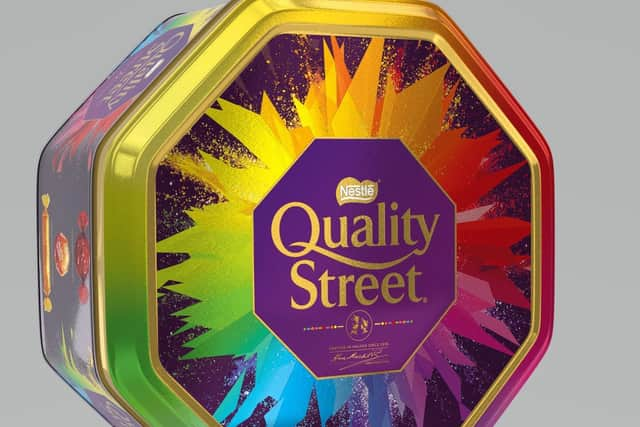Nestle bosses react to fears of reported shortage of Halifax made Quality Street
and live on Freeview channel 276
A number of sectors have recently had problems with their supply chains due to an ongoing shortage of HGV drivers, with global backlogs with shipping also playing a part.
However, Mark Schneider, the chief executive of Nestle - which makes goods including Quality Street, Lion bars, Aero and KitKat - told the BBC that it was working hard to make sure products made it onto supermarket shelves this winter.
Advertisement
Hide AdAdvertisement
Hide AdHe said: "Like other businesses, we are seeing some labour shortages and some transportation issues but it's our UK team's top priority to work constructively with retailers to supply them.


When the chief executive was asked whether he could guarantee Quality Street would be in the shops this Christmas he replied: "We are working hard."
‘We think less meat and dairy is good for the planet’
Named after a J.M. Barrie play, Quality Street is still made at the same site in Halifax, where it was first manufactured in 1936.
The iconic assortment was originally developed by Mackintosh’s of Yorkshire, which was founded in 1890 by John and Violet Mackintosh.
Advertisement
Hide AdAdvertisement
Hide AdTheir son, Harold Mackintosh, developed Quality Street in the 1930s to create an affordable, brightly coloured assortment of chocolates and sweets.
The first box went on sale for two shillings.
Around 12 million Quality Street sweets are made every day at the peak of season at Nestlé Halifax.
Mr Schneider was in the UK to launch a range of non-dairy, plant-based alternatives to its milk and chocolate in an attempt to reduce the company's greenhouse gas emissions.
Nestle is the world's largest producer of dairy products, but agriculture currently accounts for 20% of the world's greenhouse emissions, with methane from cows being a major contributor.
Advertisement
Hide AdAdvertisement
Hide AdThe company is also working with new types of feed for cattle that produce less methane per litre of milk produced.
The firm is also responding to the changing market, with more consumers moving away from dairy products and opting for dairy-free alternatives instead.
He said: "We think less meat and dairy is good for the planet, but it's also good for diet and health, and it is also a big commercial opportunity.”